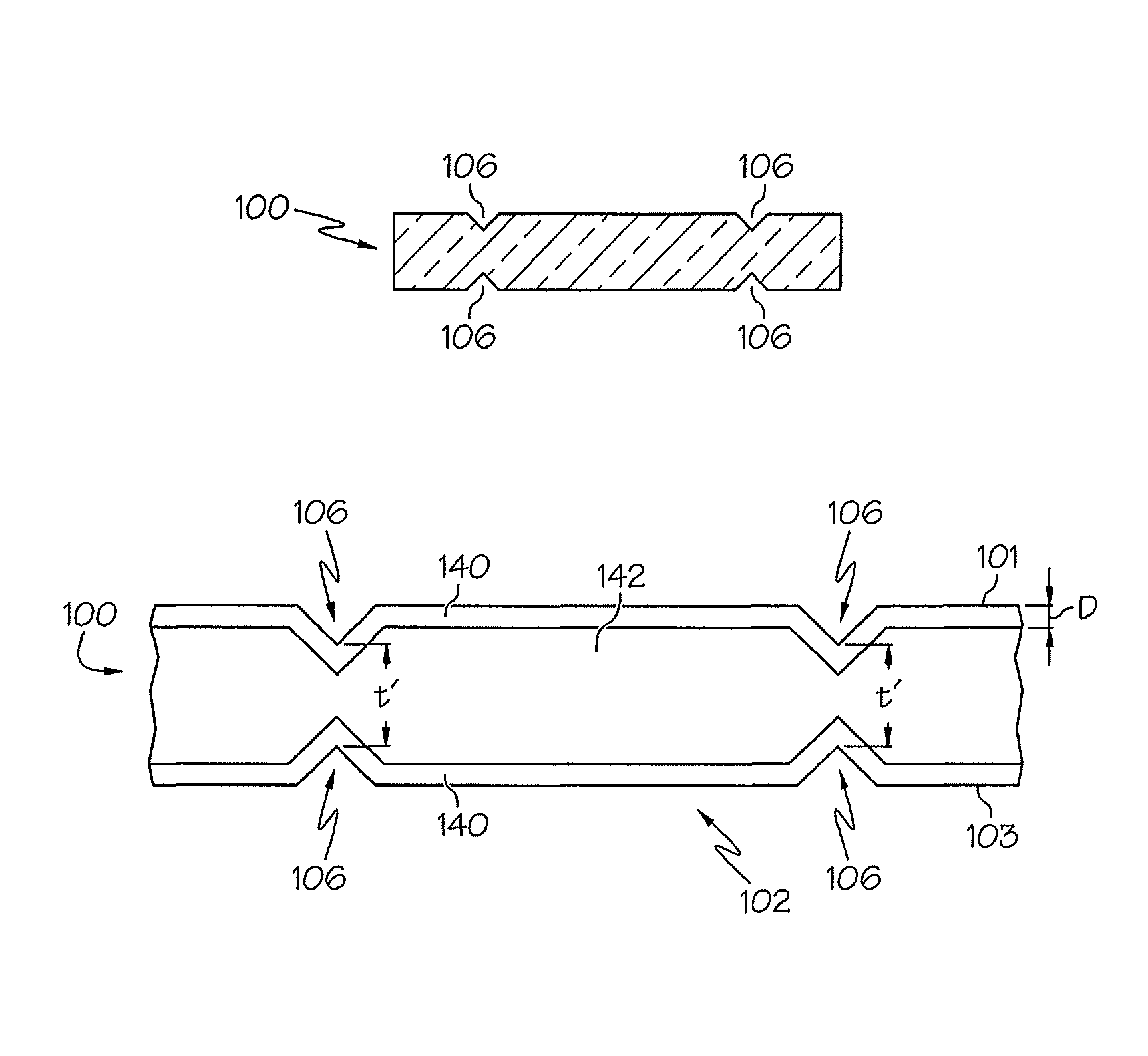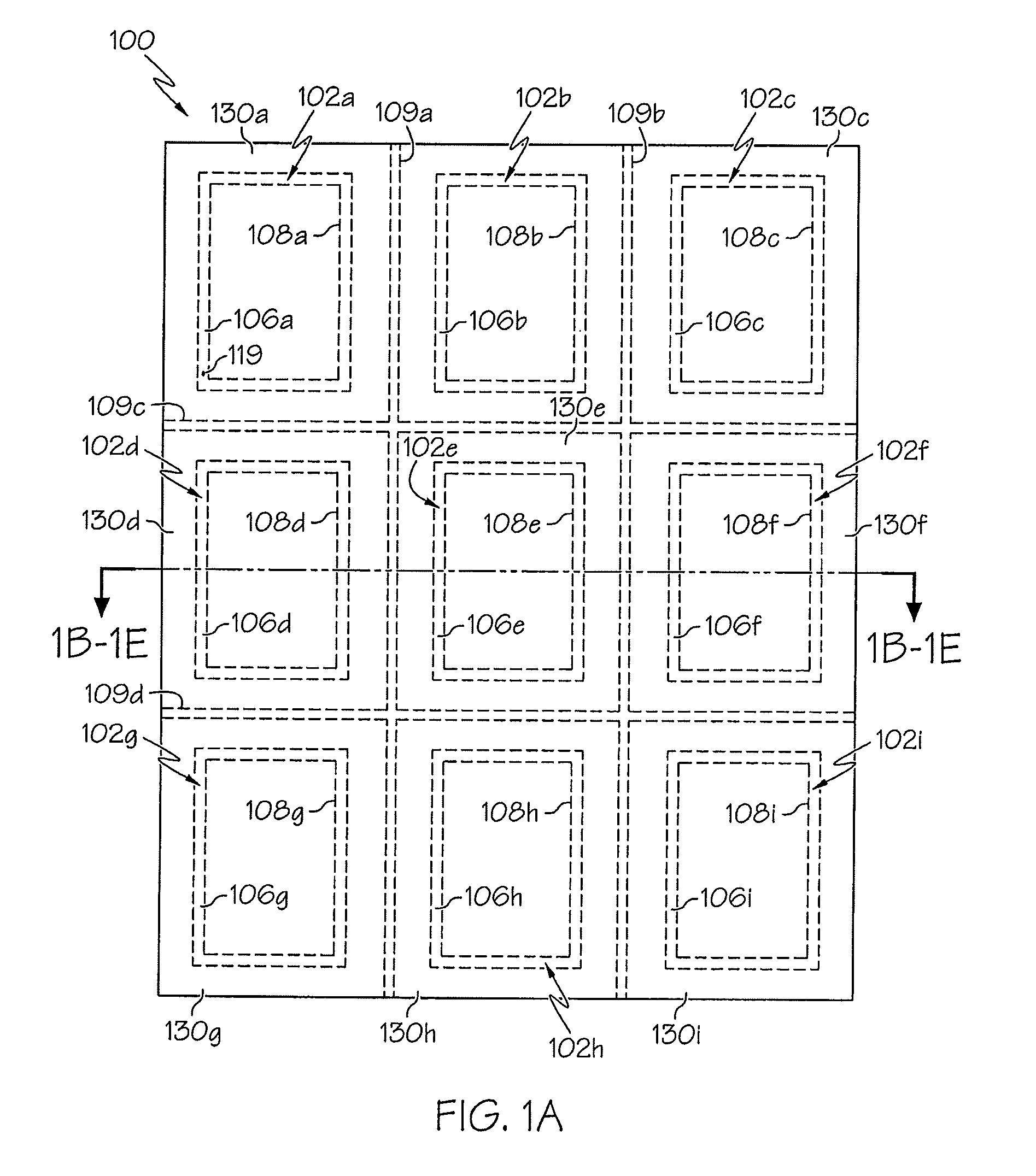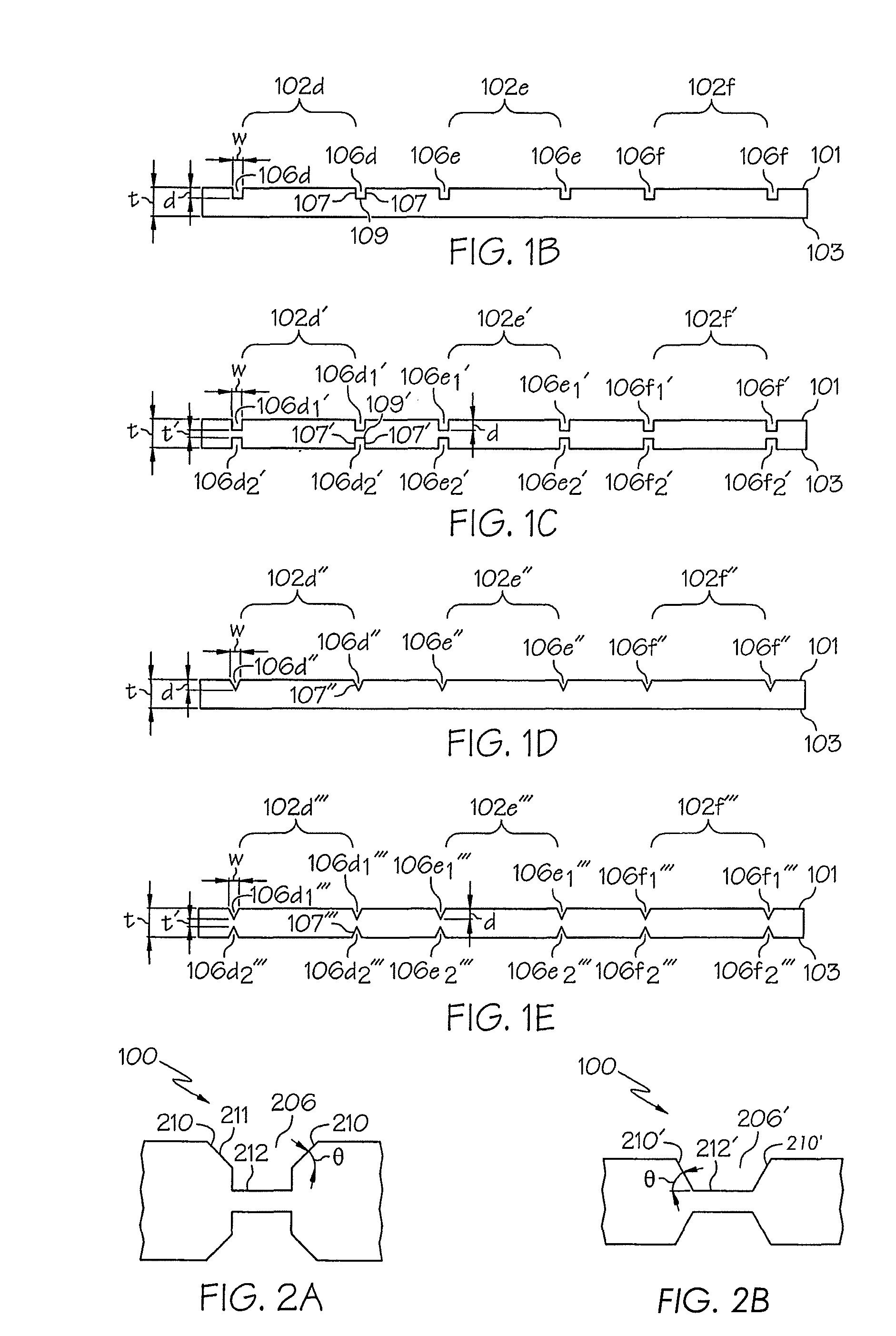Methods for forming grooves and separating strengthened glass substrate sheets
a technology of reinforced glass and grooves, applied in the direction of glass tempering apparatus, stamps, packaging, etc., can solve the problems of increased geometric complexity of glass articles, increased thickness of strengthened glass articles, and inability to form newly formed edges
- Summary
- Abstract
- Description
- Claims
- Application Information
AI Technical Summary
Benefits of technology
Problems solved by technology
Method used
Image
Examples
Embodiment Construction
[0034]Reference will now be made in detail to various embodiments of methods for grooving and separating strengthened glass substrate sheets. FIGS. 1A-7E schematically depict various embodiments of methods for separating one or more strengthened glass articles from a strengthened glass substrate sheet by the formation of grooves. In one embodiment, the method generally comprises forming a groove within a non-strengthened glass substrate sheet. The groove is continuous and defines a perimeter of the glass article that will be separated from the glass substrate sheet. The groove extends partially through the thickness of the glass substrate sheet. After the groove (or grooves) is formed, the glass substrate sheet is strengthened by strengthening process, such as an ion-exchange strengthening process. The strengthening process creates a compressive stress region on both surfaces, as well as the edges, of the glass article. The glass article is then separated from the now strengthened g...
PUM
| Property | Measurement | Unit |
|---|---|---|
| temperature | aaaaa | aaaaa |
| thickness | aaaaa | aaaaa |
| thickness | aaaaa | aaaaa |
Abstract
Description
Claims
Application Information
 Login to View More
Login to View More - R&D
- Intellectual Property
- Life Sciences
- Materials
- Tech Scout
- Unparalleled Data Quality
- Higher Quality Content
- 60% Fewer Hallucinations
Browse by: Latest US Patents, China's latest patents, Technical Efficacy Thesaurus, Application Domain, Technology Topic, Popular Technical Reports.
© 2025 PatSnap. All rights reserved.Legal|Privacy policy|Modern Slavery Act Transparency Statement|Sitemap|About US| Contact US: help@patsnap.com



